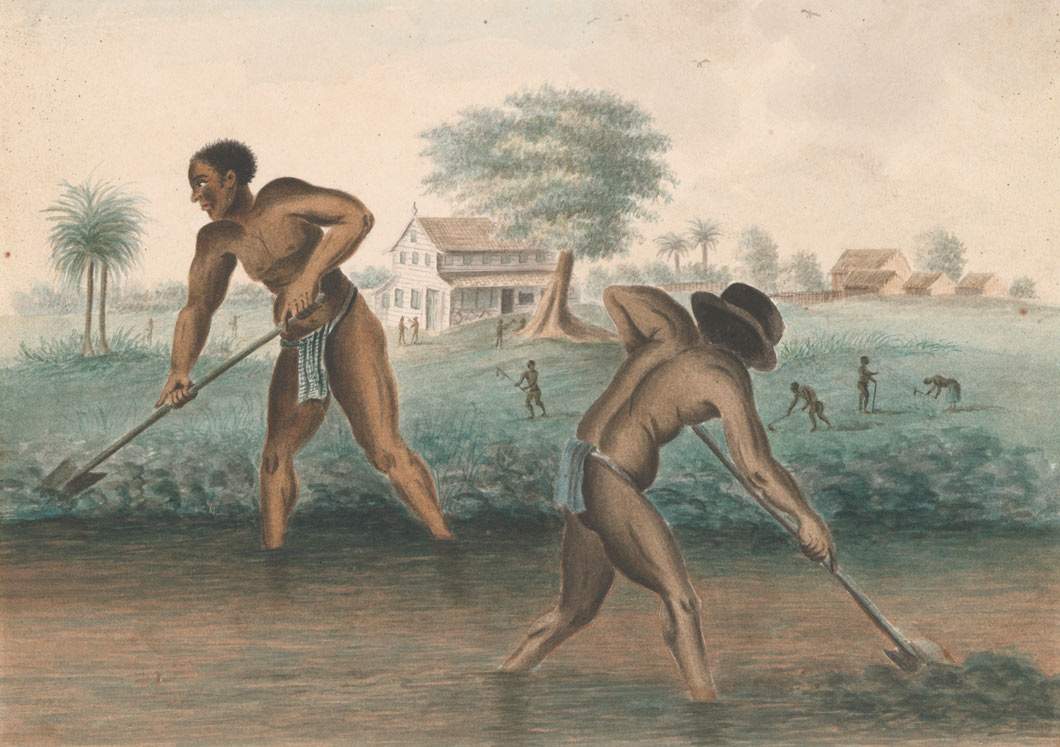From February 12 to May 30, 2021, the Rijksmuseum in Amsterdam is hosting Slavery, a major exhibition dedicated to the topic of slavery and slavery in the Netherlands: it is the first with which the Dutch museum is tackling this subject, and it is a remarkable achievement given that the history of the Netherlands is inextricably linked to that of slavery, but until now no museum had come up with the idea of dealing with the subject with an exhibition of such large, which for the first time tells the story of Dutch slavery in a museum, and it does so through ten true stories, ten personal stories of slaves and slaveholders (e.g., an African slave who worked in Holland as a servant and a sugar industrialist originally from Amsterdam), people who resisted, and people who were brought to Holland by force to be enslaved. How did the slaves live? What was their attitude toward the slave system? To what extent could they make decisions? These are some of the questions the exhibition seeks to answer.
The exhibition showcases objects, artworks and archival documents on loan from Dutch and international museums, such as the Nationaal Museum voor Wereldculturen, the British Museum, the National Gallery of Denmark, the Iziko Museums of South Africa in Cape Town, the St. Eustatius Historical Foundation, National Archeological Anthropological Memory Management (NAAM) of Curaçao, the National Archives of South Africa, Indonesia, and the Netherlands Pasi, as well as private collections from Sint Eustatius, Suriname, and the Netherlands. The focus of the exhibition is 250 years of the colonial period of the Netherlands, when people were simply property and objects to be included in buying and selling records.The exhibition focuses on what life was like for slaves, what the slaveholders benefited from the trade and use of slaves, and then again issues such as resistance to slavery, enfranchisement, and freedom are addressed.
The chronological span covered by the exhibition is from the 17th to the 19th century (slavery in Holland was abolished in 1863): the slave trade that Holland set up between Surinam, Brazil, and colonies in the Caribbean, the role played by the Dutch West India Company, Dutch slavery in South Africa and Asia, i.e., the places where the Dutch East India Company operated, and then again the effects that slavery had in Holland will be discussed. The idea is to approach the topic of Dutch slavery from a geographically broad perspective, while at the same time focusing exclusively on Dutch history, without touching on the history of slavery in other parts of the world.
The exhibition is accompanied by a free audio guide (there is also one specifically for children), and in addition, for the occasion, the Rijksmuseum will create a number of focuses on objects in the collection related to the theme of slavery. These are about seventy pieces that will have additional explanatory panels to bring out the objects’ links to the history of slavery. Also accompanying the exhibition is a richly illustrated book, edited by Eveline Sint Nicolaas and Valika Smeulders, published by Atlas Contact Publishers, available from February 2021. Several educational activities, and a program of meetings, are also planned.
“By focusing on ten personal stories,” says Valika Smeulders, head of the Rijksmuseum’s history department, “the exhibition will offer a look at how individuals related to this legalized injustice.” Rijksmuseum director Taco Dibbits says, “The Rijksmuseum is the national museum of art and history. And slavery is an integral part of our history. By confronting it, we can model a more complete picture of our history and we can better understand today’s society.”
For all information about the exhibition you can visit the Rijksmuseum website.
Image: Anonymous, Slaves Dig a Canal, detail (c. 1850; Amsterdam, Rijksmuseum)
 |
| Holland reckons with its past: first exhibition on Dutch slavery at Rijksmuseum |
Warning: the translation into English of the original Italian article was created using automatic tools. We undertake to review all articles, but we do not guarantee the total absence of inaccuracies in the translation due to the program. You can find the original by clicking on the ITA button. If you find any mistake,please contact us.